#cornish langblr
Text
So, why do people care so much about Cornish identity? Cornwall’s just a part of England right? Another county with some distinct foods and a funny accent, and they moan about the tourists- when they should be grateful for the money.
Except it’s not.
Whilst the rest of England was forming with a character influenced by Germanic and Norse cultures, Cornwall was holding itself separate as an independent Celtic kingdom, with strong links with Wales, Ireland and Brittany- as well as trading with the wider Mediterranean. For a long time, this kingdom included parts of Devon, but eventually the Celtic people were forced back past the Tamar, and at some point started referring to the land as Kernow, rather than Dumnonia (probably).
Even after the Norman conquest, in part because Cornwall came under the control of the Duke of Brittany, Cornwall retained elements of its unique culture, and certainly its language. There are existing works of literature written in the Cornish language (also called Kernewek) during the medieval period. Due to the active tin mining industry and the Stannary courts, they even had a separate legal system.
All of this continued until the start of the Tudor period, when Henry VII, desperate for money for his wars with Scotland, suspended the operation of the Cornish Stannaries, and imposed greater taxes. This ultimately led to the Cornish Rebellion of 1497. An army of as many as 15000 rebels marched towards Somerset, and ultimately to London, where the rebels met with Henry VII’s armies. Unfortunately, the Cornish lost the ensuing battle, and the rebel leaders were captured, killed and quartered, with their quarters being displayed in Cornwall and Devon. From 1497 to 1508, Cornwall was punished with monetary penalties, impoverishing the people, and land was given to the king’s (English) allies.
However, this wasn’t the death of Cornish culture or dreams of independence from England. Until 1548, Glasney college was still producing literature in Cornish- when it was destroyed in the dissolution of the monasteries, during the English reformation. The following year, 1549, the Cornish rose again- this time to demand a prayer book in their own language, which was still the first (and often only) language of most people in the region. The rebellion was also about the ordinary people vs the landowners, as shown by their slogan “kill all the gentlemen”.
Unfortunately, this rebellion failed too, and this time, it wasn’t just the leaders who were killed, but up to 5,500 Cornishmen- which would have been a significant proportion of the adult male population at the time. These factors combined are widely thought to have contributed to the decline of the Cornish language- although it was still widely in use centuries later.
Despite the failings of these rebellions, the Cornish retained a distinct language and their own culture, folklore and festivals. Mining, farming and fishing meant that the region itself wasn’t economically impoverished, as it was today. Even towards the end of the 1700s, there were still people who spoke Cornish fluently as a first language (including Dolly Pentreath, who definitely wasn’t the last Cornish speaker).
However, over time, the tin mines became less profitable, and Cornwall’s economy started to suffer. Especially in the latter part of the 19th century, many Cornish began to emigrate, especially to places like Australia, New Zealand (or Aotearoa), Canada and South America. Cornish miners were skilled, and were able to send pay back home, and along with the Welsh, influenced culture and sport in many of these places. Many mining terms also have their roots in Cornish language and dialect.
Throughout the 20th Century, Cornwall went through an economic decline- to the point where, when the UK was an EU member, Cornwall was receiving funding intended for only the most deprived regions in Europe. It was one of very few places in the UK to receive this funding- due to the levels of poverty and lack of infrastructure.
Part of the decline was also linked to the decline of historic fish stocks, such as mackerel. In the 70s and 80s, there was a mackerel boom- and large fishing trawlers came from as far away as Scandinavia (as well as Scotland and the north of England) to fish in Cornish waters. The traditional way of fishing in Cornwall used small boats and line fishing. The local fishermen couldn’t compete, and ultimately stocks were decimated by the trawlers. Many more families had to give up their traditional way of life. One could draw parallels here with worldwide indigenous struggles over fishing rights.
Despite this, Cornish communities retained their traditional folklore and festivals, many of which are still celebrated to this day. And throughout the 20th Century, efforts were made to preserve the Cornish language. Although there may not be any first language Cornish speakers left, it is now believed that community knowledge of the language was never truly lost.
Cornwall has since become a popular tourist destination. This brings its own problems- many people want to stay in self-catering accommodation and, more recently, air bnbs. This, alongside second homes, has gutted many Cornish communities. The gap between house prices and average wages is one of the largest in the country. Land has become extremely expensive, which hurts already struggling farmers. Roads can’t cope with the level of traffic. The one (1) major hospital can’t cope with the population in the summer. All of last winter, most Cornish households faced a “hosepipe ban” due to lack of water- yet in the summer, campsites and hotels can fill their swimming pools and hot tubs for the benefit of tourists.
Does this benefit Cornwall? Only about 13% of Cornwall’s GDP comes from tourism. The jobs associated with tourism are often poorly paid and may only offer employment for part of the year. People who stay in Air BnBs may not spend that much money in the community, and the money they pay for accommodation often goes to landlords who live upcountry and aren’t Cornish. Many major hotels and caravan sites are also owned by companies that aren’t Cornish, taking money out of the local economy.
Match this with a housing crisis where it’s increasingly difficult to rent properties long term, and buying a flat or house in Cornwall is out of reach of someone on the average salary and it’s easy to see why people are having to leave communities where their family lived for generations. This damages the local culture, and means centuries-old traditions can come under threat.
All of this feeds into the current situation; it feels like middle class families from London see Cornwall as their playground, and moan about tractors on the road, or the lack of services when they visit. People talk about theme park Cornwall- a place that’s built for entertainment of outsiders, not functionality for those who live here. More widely, a lot of people around the UK have never heard of the Cornish language, or view it as something that’s “extinct” or not worth preserving.
The Cornish are one of Britain’s indigenous cultures, alongside Welsh, Gaelic, Scots, Manx and others. And it’s a culture that’s increasingly under threat economically and culturally. We’ve been clinging on to our homes for a long time, and even now it still feels like we might be forced from them (indeed some of us are). So yes, Cornish people can seem excessively defensive about our identity and our culture- but there’s good reason for it!
#uk politics#cornwall#cornish#kernow#kernewek#celtic languages#minority languages#minority cultures#Cornish history#cornish langblr
277 notes
·
View notes
Photo
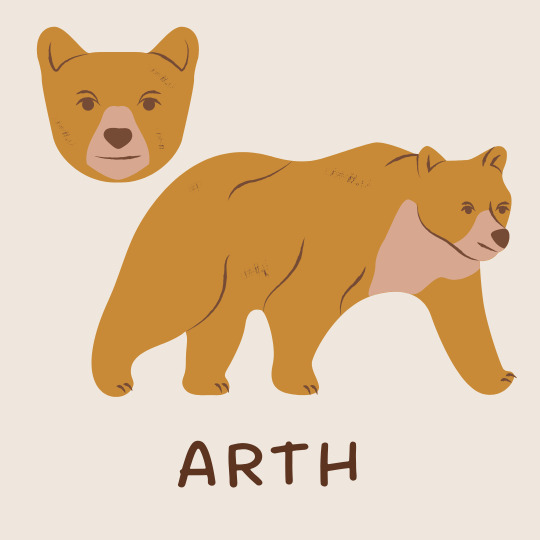

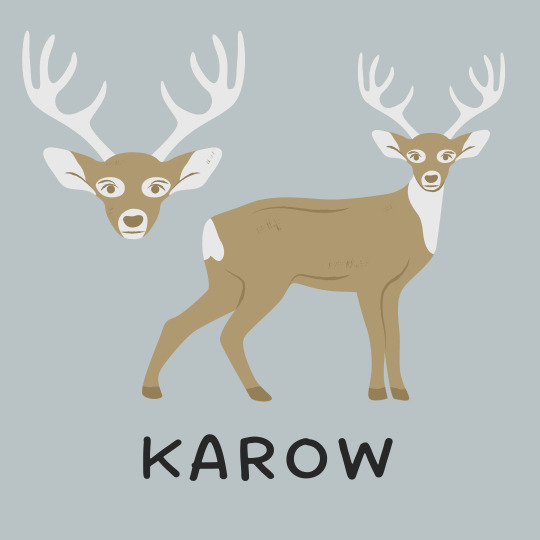

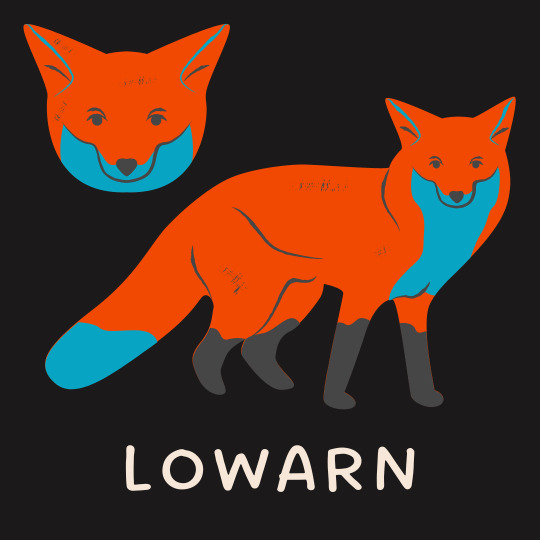
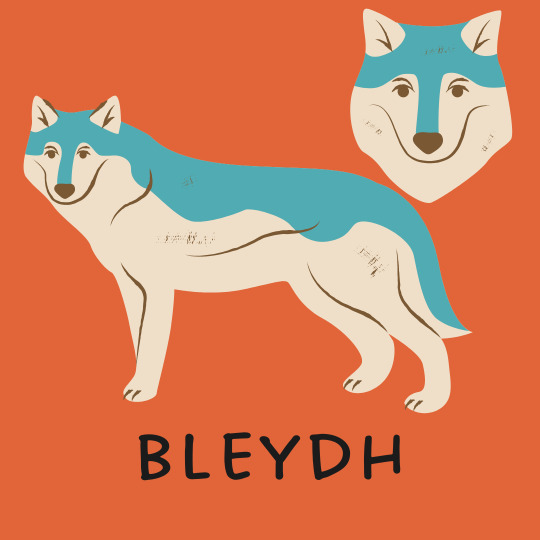
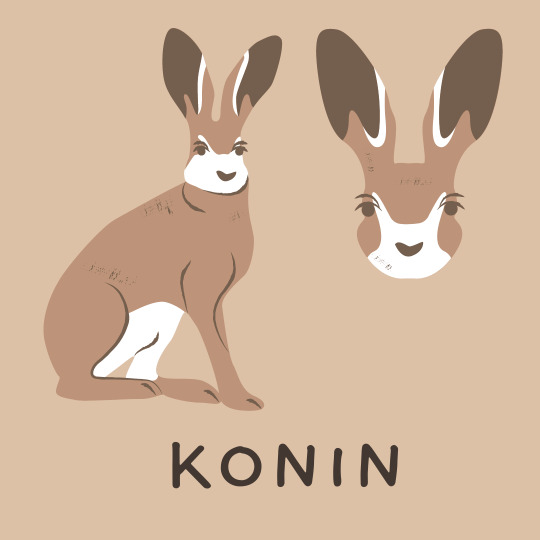
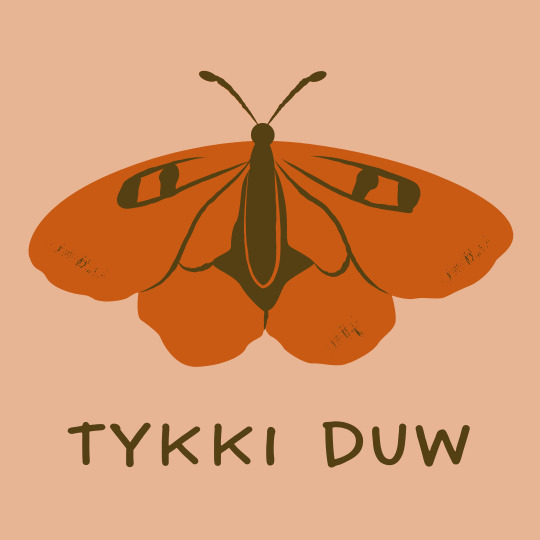
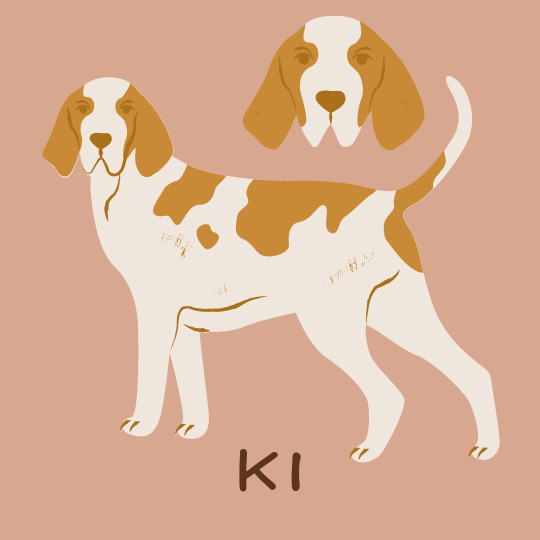
Bestys yn Kernewek “Beasties in Cornish”
#cornish#kernewek#kernowek#teangacha ceilteacha#mo fhoilseachán#languages#langblr#vocabulary#language tumblr#celtic languages
10K notes
·
View notes
Text
#langblr#celtic#celtic languages#welsh#irish#cornish#breton#cymraeg#gaeilge#gàidhlig#kernewek#breizh
47 notes
·
View notes
Text
#curious bc i mostly post about japanese atm but for ages i was very much a mostly norwegian langblr#but in the past i was also spanish and finnish and icelandic#i miss those languages actually#and i do try to reblog every celtic languages post that comes across my dash#especially cornish and irish
10 notes
·
View notes
Text
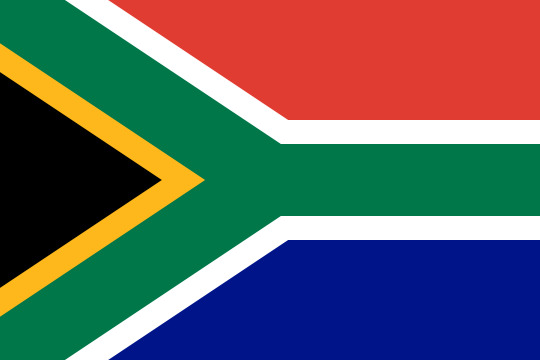

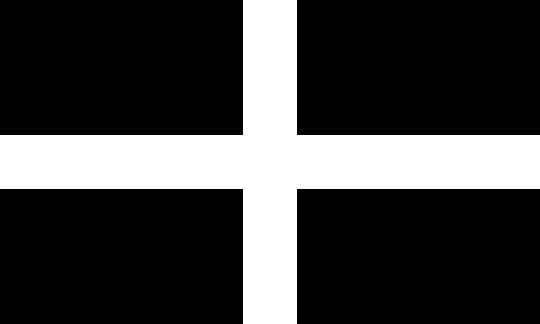

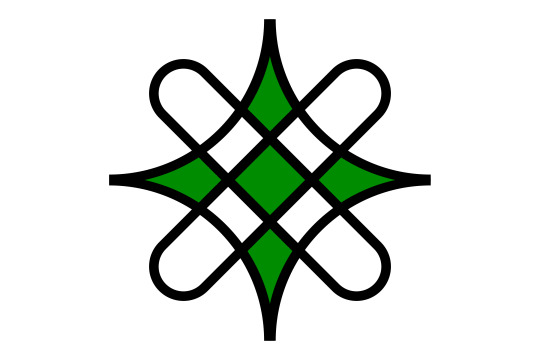

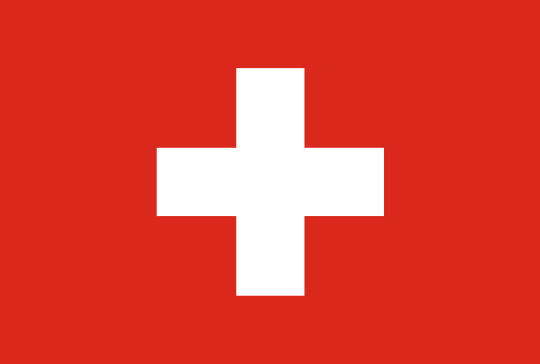

Nine new languages added to LangGuessr:
Afrikaans
Breton
Cornish
Estonian
Hausa
Korean
Nynorsk (under "Norwegian")
Swiss German
Yoruba
#langblr#language learning#learn afrikaans#learn breton#learn korean#learn cornish#learn estonian#learn hausa#learn yoruba#learn swiss german
8 notes
·
View notes
Text
While talk of a new golden age of Celtic cinema might be premature, there’s no mistaking an eclectic new wave of projects making an impact elsewhere: cinemas, television and streaming platforms. Lee Haven Jones’ Welsh-language horror movie The Feast (Gwledd, 2021), shortlisted for the Sutherland Award at the 2021 BFI London Film Festival, was released in US cinemas last year. The first Breton-language drama series, Fin Ar Bed (2017-), was a major hit with French audiences. And Alastair Cole’s acclaimed Boat Song (Iorram, 2021), a lyrical portrait of the Gaelic-speaking fishing community in the Outer Hebrides, is the first cinema documentary entirely in Scots Gaelic.
#langblr#multilingualism#language#languages#multilingual#language reclamation#language revitalisation#language revival#minority languages#endangered languages#indigenous languages#irish language#welsh language#Cornish language#breton language#Scottish Gaelic#c
128 notes
·
View notes
Text
A brief introduction
Hello! 👋🏻
I'm not new to tumblr or langblr (you may know me as nordic-language-love), but I've decided to make a new blog for a whole host of reasons. And it's only courteous to have an introduction post when ones makes a new blog, isn't it?
👩🏻 You can call me Victoria
🎂 I'm in my 30s
🇯🇵 Originally I'm from the UK, but I currently live in Japan (Tohoku) where I teach English
🇳🇴 Learning Norwegian and Japanese. Japanese is currently my main focus for obvious reasons, but Norwegian will always be my fave <3
🗣 Other languages I'm interested in: Finnish, Icelandic, Spanish, Irish, Korean, Ukrainian, Tswana, Cornish and French
💬 Big linguistics fan too (etymology my beloved)
📚 I'm an aspiring bookworm. My favourite genres are fantasy and sci-fi (with a lil YA sprinkled in there). Find my 2024 TBR here.
📝 I also write! Getting something published someday would be nice, but I'm more focused on just having fun. I write primarily fantasy.
🩰 I practice yoga (intermediate level) and ballet (total beginner)
🧠 I'm neurodivergent. I have no official diagnosis yet but I have been referred for an assessment. I'm 99% sure I have ADHD (probably combined, possibly just inattentive) and autism's been suggested as well.
✉️ I'm shit at replying to messages. If I never get back to you please don't take it personally!
More about this blog
This blog is gonna be a bit of a mix of all my hobbies and interests because I can't be bothered to run like 5 different sideblogs anymore. However, my main interests that I'll be posting about are languages and reading.
I have a fitblr for my diet and fitness shenanigans! You can follow me on @flyingfitandsugarfree
I go through phases of posting original content, but I mostly post about my own journey and whatever random thoughts pop into my head
I try to post language learning logs once a week, where I kinda summarise what I've been working on and what progress I've made
Because I live in Japan, I sometimes like to post about my life there and how it differs from life in the UK
I don't really do aesthetic posts. Most of what I post is wordy and boring lmao
If you feel like being my friend, give me a follow! I'd love to get to know you :)
My 2024 Goals
85 notes
·
View notes
Text
cornish breakthrough - what to cover to grasp basics
https://www.ocr.org.uk/images/77846-specification-1-breakthrough.pdf
2 notes
·
View notes
Photo
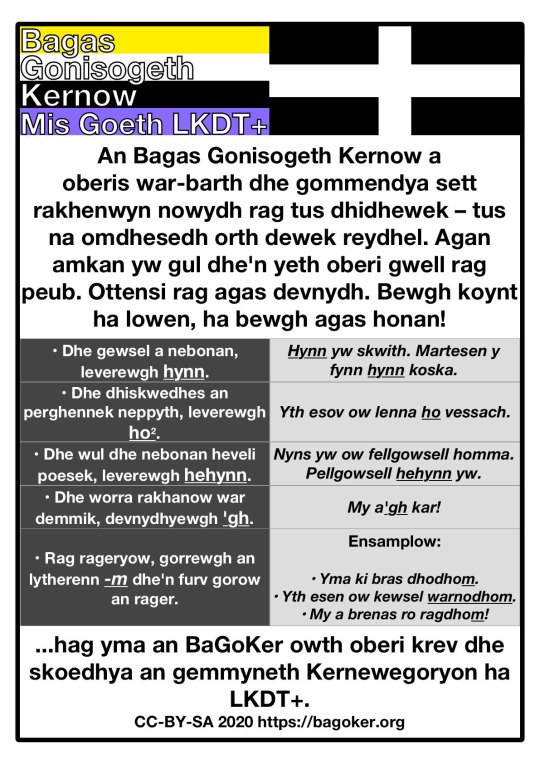
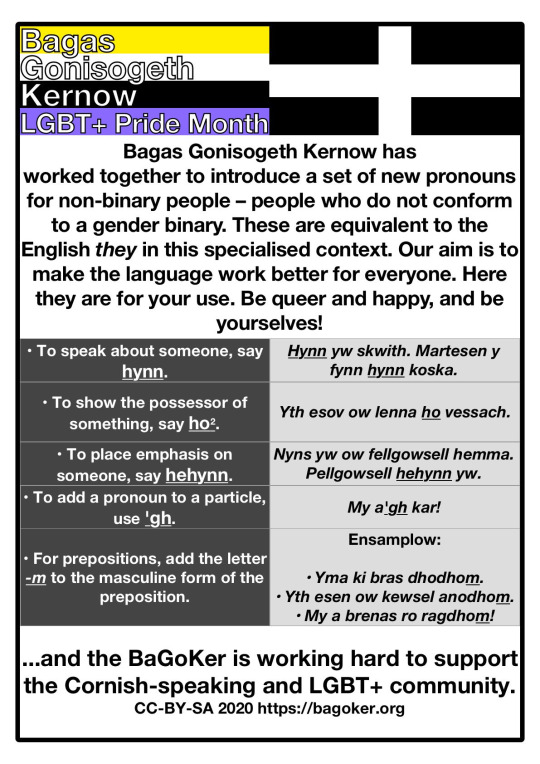
Info on hynn pronouns and how to use them!
[source]
96 notes
·
View notes
Text
Language vitality
Language vitality can be measured on a scale from “healthy” to “extinct”. A UNESCO paper proposes nine factors that can determine the viability of a language:
Absolute number of speakers
Availability of materials for language education and literacy
Community member’s attitudes towards their own language
Governmental and institutional language attitudes and policies, including official status and use
Intergenerational language transmission
Proportion of speakers within the total population
Response to new domains and media
Shifts in domains of language use
Type and quality of documentation
Almost all these factors include six degrees of endangerment: safe (healthy), unsafe/vulnerable, definitely endangered, severely endangered, critically endangered, and extinct.
The causes of language endangerment can be divided into four main categories:
disease, famine, natural catastrophes: The village of Malol in Papua New Guinea was destroyed by an earthquake in 1998. Malol was estimated to have 3,330 speakers at the time.
genocide and war: The Kasabe language of Cameroon became extinct in 1995 as a result of Fulani jihad during the 19th century and the subsequent enslavement and massacre.
overt repression (assimilation): Breton, spoken in France, is an example of a severely endangered language that suffered repression in the name of national unity.
cultural/economic/political dominance: Santali, a language of India, is classified as vulnerable due to the predominance of Bengali and especially Hindi, which is the official language of the country together with English.
There is a difference between an extinct language, which is one that no longer has any speakers, and a dead language, which is one that no longer is the native language of any community, even if it is still in use. Latin, the official language of the Holy See, and Coptic, the liturgical language of the Coptic Orthodox Church, are two examples of dead languages.
To revive an extinct language, adequate documentation is necessary, as has been the case of Hebrew and Cornish, among others. This process is known as language revitalization and also refers to the attempt to slow language death. Some examples include Ainu, Livonian, Navajo, and Māori.
133 notes
·
View notes
Text
Cornish Language Resources
Learning
Gerlyver Kernewek - Online Cornish dictionary
Say Something In Cornish - Cornish lessons in podcast format
Tamm ha Tamm - Video series teaching simple conversational Cornish
GoCornish - Interactive Cornish resources for all ages
-> Memrise course (flashcards with audio)
-> Word Tango (puzzle app available in Cornish)
-> Kows ha Flows (listening materials with notes and vocabulary)
Kesva an Taves Kernewek - Cornish Language Board
-> KDL lessons (designed as a correspondence course but suitable for independent study)
-> Classroom resources (worksheets, activities, etc)
-> Skeul an Yeth - Free Cornish textbook
-> Past papers
Desky Kernowek - Cornish lessons in podcast format (Late Cornish)
-> This is an older site with a lot of dead links, but you’ll be pleased to hear their 24 audio lessons, their grammar notes and their in-depth guide to swearing in Cornish are all still fully functional.
Modern Cornish - Written lessons and texts in Late Cornish
Reading and Listening
Radyo an Gernewegva - Radio and TV in Cornish
An Nowodhow - Radio news bulletin in Cornish
Kernewek Bew - Website with a collection of video and audio in Cornish
Kowethas an Yeth Kernewek online shop - Books for sale in and about Cornish
Agan Taves - Books for sale and for free in and about Cornish
An Gannas - Monthly magazine in Cornish
-> Dalleth - The puzzles from An Gannas on their own
Bibel Kernewek - The Bible in Cornish
#kernewek#lyverva#sa bheurla#langblr#cornish language#i've done my best to check these but if there are any problems lmk
200 notes
·
View notes
Link
A series of short films has been produced in Cornish (with English subtitles).
I know Tumblr loves a Celtic language, so please show these some love, and then maybe more media will get produced yn Kernowek.
#cornish#cornwall#kernowek#kernow#cornish langblr#minority language#celtic language#brythonic language#revived language
245 notes
·
View notes
Text
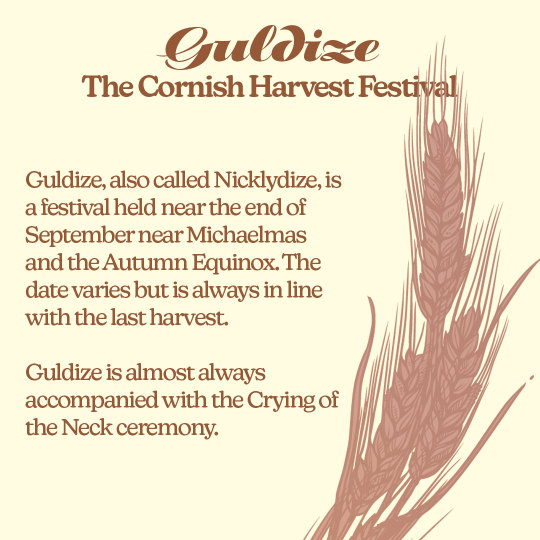
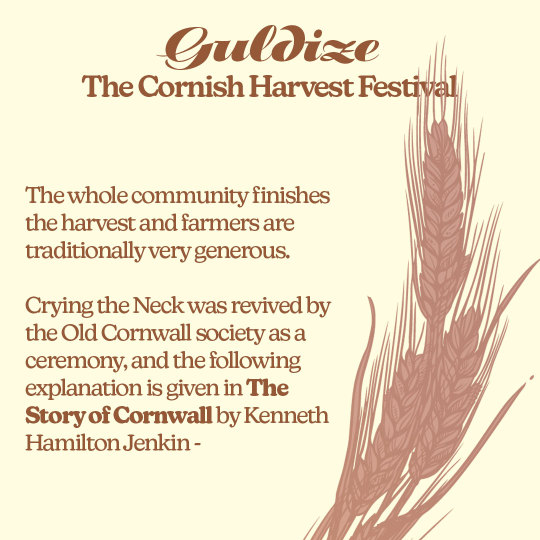
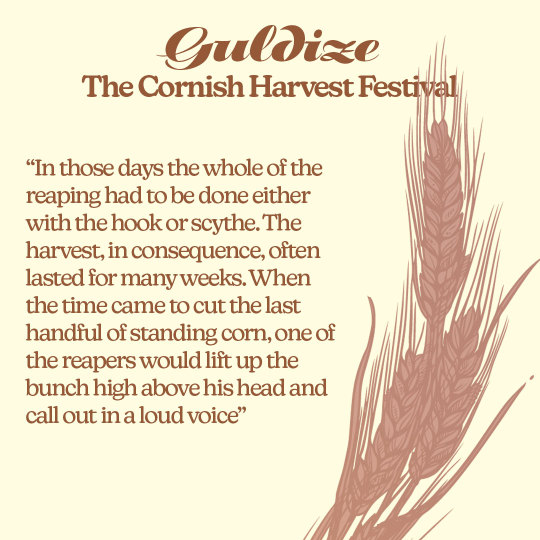
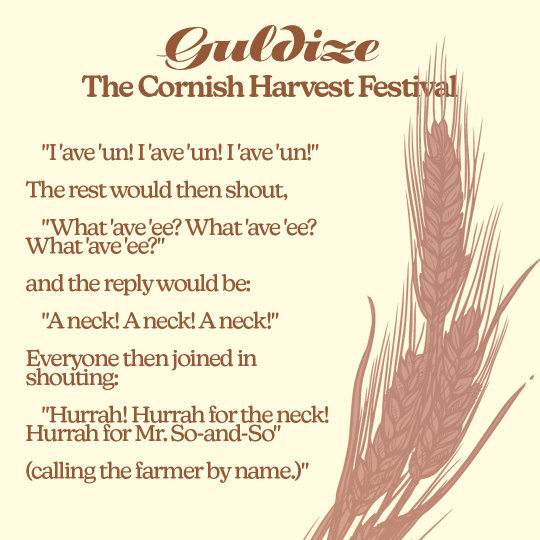
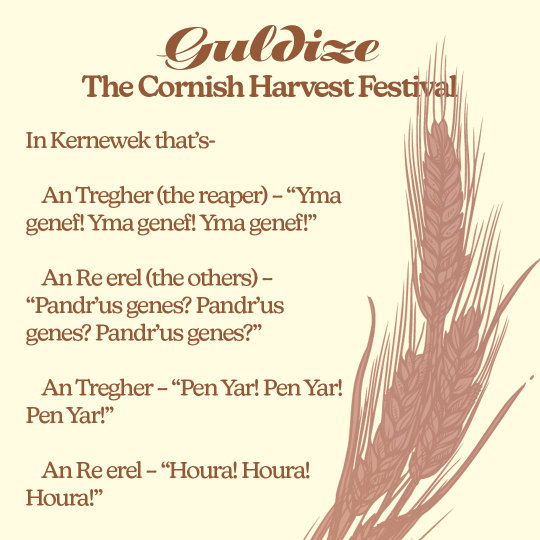
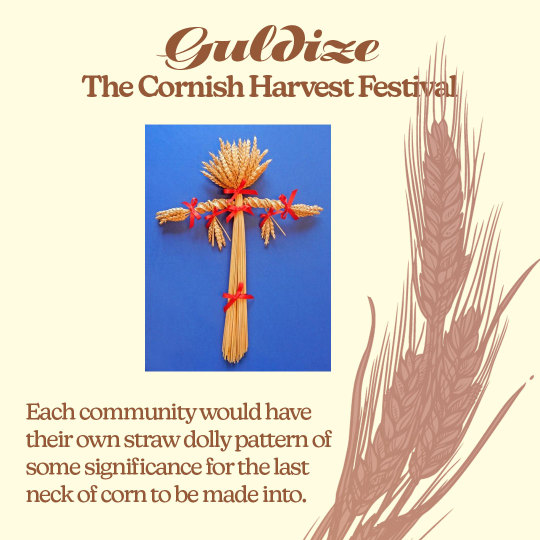
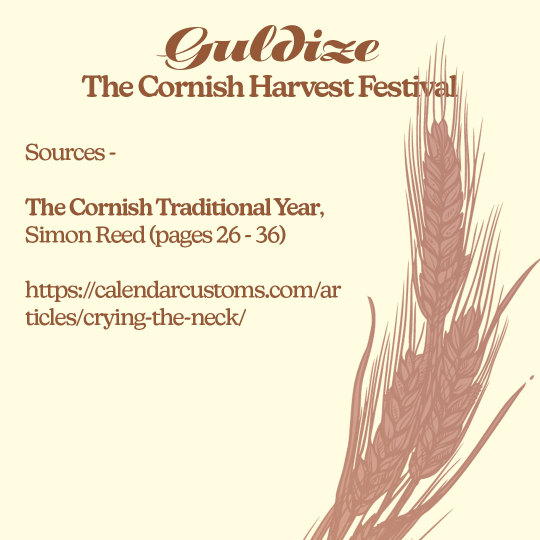
Guldize - Cornish Harvest Festival
Slide 1
Guldize, also called Nicklydize, is a festival held near the end of September near Michaelmas and the Autumn Equinox. The date varies but is always in line with the last harvest.
Guldize is almost always accompanied with the Crying of the Neck ceremony.
Slide 2
The whole community finishes the harvest and farmers are traditionally very generous.
Crying the Neck was revived by the Old Cornwall society as a ceremony, and the following explanation is given in The Story of Cornwall by Kenneth Hamilton Jenkin -
Slide 3
“In those days the whole of the reaping had to be done either with the hook or scythe. The harvest, in consequence, often lasted for many weeks. When the time came to cut the last handful of standing corn, one of the reapers would lift up the bunch high above his head and call out in a loud voice”
Slide 4
"I 'ave 'un! I 'ave 'un! I 'ave 'un!"
The rest would then shout,
"What 'ave 'ee? What 'ave 'ee? What 'ave 'ee?"
and the reply would be:
"A neck! A neck! A neck!"
Everyone then joined in shouting:
"Hurrah! Hurrah for the neck! Hurrah for Mr. So-and-So"
(calling the farmer by name.)"
Slide 5
In Kernewek that’s-
An Tregher (the reaper) – “Yma genef! Yma genef! Yma genef!”
An Re erel (the others) – “Pandr’us genes? Pandr’us genes? Pandr’us genes?”
An Tregher – “Pen Yar! Pen Yar! Pen Yar!”
An Re erel – “Houra! Houra! Houra!”
Slide 6
Each community would have their own straw dolly pattern of some significance for the last neck of corn to be made into.
Sources
The Cornish Traditional Year, Simon Reed (pages 26 - 36)
https://calendarcustoms.com/articles/crying-the-neck/
#Cornwall#Cornish#Kernow#Kernewek#Cornish Culture#langblr#Witch community#witch network#witchblr#trans witch#queer witch#lgbt witch#nonbinary witch#trans pagan#queer pagan#nonbinary pagan#lgbt pagan#guldize#folk holiday#folk tradition#cornish folk custom#folk custom#heddwynn post#celtic holiday#folk festival#celtic festival
50 notes
·
View notes
Text
youtube
not enough love for this excellent TRILINGUAL short film.
english, cornish & catalan(?)
9 notes
·
View notes
Text
(Re)introduction post
I seem to be gaining a lot of new followers atm (migrants from langtwt, I’m guessing! In that case: hello and welcome to langblr!) SO here’s a little bit about me and my blog!
About Me
I mostly go by Victoria online and it's what I prefer
She/her
In my 30s (yes I am a Real Adult with at least some of my shit figured out)
UK born and raised (East Midlands), although I'm moving to Japan soon!
I currently teach English as a foreign language on italki to students of all ages (current age range is something like 5-60), but will be teaching at an Eikaiwa from January
I'm also an aerialist (pole and hoop), which I teach and perform, a stilt-walker and fire performer (you can go visit my sideblog @jo-jenova if you're interested)
I'm also a fan of gymnastics, dance, writing (fantasy/sci fi/general fiction), baking, buying and owning books (and occasionally reading them), vikings (not in a weird white supremacist way), corvids, cats, Star Trek and, of course, linguistics
I’m currently awaiting an ADHD and autism assessment. I’m 99.9% sure I have ADHD and have pretty much no doubts that I’ll get a diagnosis (autism I’m less convinced of, but we’ll see what the experts say)
Languages
My native language is English (British - close to modern RP)
I also speak Norwegian and it is my main love/target language. This year I took the official B2/C1 exams and got C1. I write bokmål and speak a variety of Oslo dialect.
I'm also learning Japanese (current level: not quite N5). My goal is to reach a comfortable N5 level before I go there.
I largely understand Scots (more written than spoken), Danish (more written than spoken) and Swedish.
Languages I love and have some experience with but am not learning right now include: Finnish, Icelandic, Ukrainian, Tswana, Spanish
Wishlist: Korean, Cornish, Irish, Old Norse, Old English, Chinese
I can speak/understand a bit of French because I learned it for like 12 years but I've forgotten most of it (I do appear to be dabbling in it a little again though whoops lol)
I post primarily about Norwegian, Japanese, other Nordic languages, Celtic languages (Scots included as an honorary member) and linguistics, but occasionally I'll post about other things too.
About My Blog
My blog focuses primarily on my own personal language journey. I'm not really about aesthetics (you might get an aesthetic picture once in a blue moon) or pretending to be more advanced than I am. I mostly try to reflect where I am.
Sometimes this means I come across as bragging when I’m proud of myself or attention-seeking when I’m feeling down. That’s not my intention; I mostly just aim to be honest with myself and everyone else.
I post language logs once a week. These are so I can keep a track of what I've been doing and how I feel from week-to-week. They're not to show off how much I did or make anyone feel like they should be doing more. But if they make you feel that way and need to unfollow me because of that, then I understand.
Other things I post may include vocabulary lists, grammar posts, things related to linguistics, challenges and links to things related to my target languages that I find interesting.
I don’t do drama or discourse. I feel no obligation to respond to inflammatory asks and usually delete anything that I think is contentious. This is a language blog and it’s pretty rare that I deviate from that (I have a side blog for all my non-languagey stuff). But of course you can ask me questions about me and my life!
My blog is absolutely a safe space for people from all walks of life regardless of sexual identity, gender identity, ethnicity, nationality, colour, religion, size, IQ, background etc. If you consider that to be an issue, then you know where the unfollow button is.
I’m kinda terrible at replying to messages, so please don’t take it personally if I never respond to you.
My ask box is always open and anon is always on, so please feel free to send me any questions you have! (But uhh like I say I’m bad at replying sometimes so please just give me a nudge because honestly I may have just forgotten)
66 notes
·
View notes
Text
“I think people are more positive about the language than they ever have been...In the past, people couldn’t see the point, or it was seen as something for linguists and academics but as the profile of Cornwall has been raised, the culture has been greater appreciated, which carries over to the language as well.”
#langblr#multilingualism#language#languages#multilingual#lingblr#bilingual#language reclamation#language revitalisation#language revival#bilingualism#minority languages#endangered languages#language learning#indigenous languages#language education#Celtic languages#Cornish language#kernewek
46 notes
·
View notes